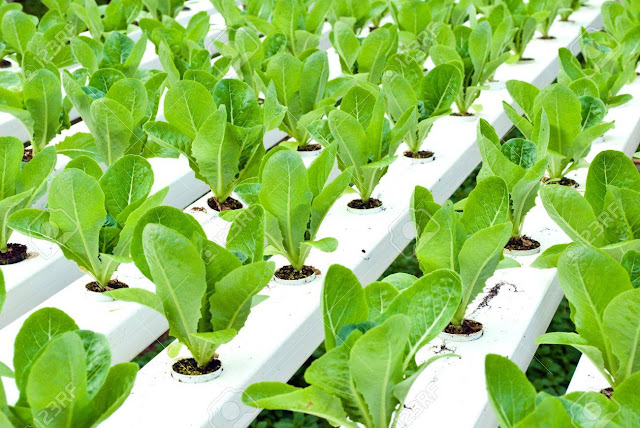HYDROPONIC FARMING: THE FUTURE OF FARMING
India federation of culinary association (IFCA) did a survey on the toxicity level on the food that was available in India, results came which stated that the most poisonous food we consume on a day to day bases was mint and coriander. By 2050 we will be 10 billion people, by then there will be a 70% increase in food production and with the limited land, we will not be able to meet the requirements unless we do sea farming, which is not possible in near future.
India houses 120 million farmers out of which every half an hour a farmer is committing suicide. In which 40% don't like farming and they don't want their next generation to do farming. In the agriculture industry, experts say that for a farm to be viable you need at least one hectare land per farmer and the irony is out of all the farmers we have 70% less than one hectare.
As we move forward farming is becoming unviable in its current form and state. Farmers are quitting farming on a daily basis and why they don’t, the average income of a farming family is 6000 rupees and the average income of a security guard in a city is 8000 rupees. So for a farmer, it is the easy choice not to do that backbreaking work and uncertainties of climate, all of that he may or may not get that 6000 for his family. It is not the farmer; the entire food supply chain is broken. India talks about calories per person but we merely focus on nutrition in those calories. But developed countries are thinking nutrition per calorie.
Domestic usage of water in homes constitutes only 5% of the water resources used and Agriculture constitutes 90% of the water utilization. In the future war will be fought on water. In India we grow rice, wheat, Sugar and cotton in a mass production and these are the crop which also uses 30 -40 hundred times more water than other crops in other countries.
We also know that by 2020,60% of the population will be living in urban jungle and these urban cities will displace more farmlands. To meet the requirements the only way forward is urban farming, where one can grow things at smaller places with higher intensity and with technologies that enable you to produce more out of less. One of the technologies in this is hydroponic; it is a science of growing plants directly on water without any soil. Yes you heard it right; you do not need soil to grow plants. The soil is just a support structure and you can replicate everything else directly on the water.
Hydroponic farming saves 90% water and this lets us do vertical farming, which means as we are not dependent on soil, we can grow one layer on top of the other and so on. Also as we are not dependent on the soil it doesn’t matter whether the soil is rocky or the quality of the soil is bad or it's a beach. It can be done everywhere, parking lots of basements and rooftops, all of them can be converted into food production entities. Hydroponic systems do not require pesticides, require less water and space than traditional agricultural systems.
It also solves the problem with people living in cities, as they don't have time, they don't have water, they don't want to get their hands dirty, and hydroponic fit into all of these. One can just standardized retrofit a rooftop and without any impact on the roof itself. Also, this setup on the rooftop increases up to 20% of the cooling efficiency of the building. Every family can start producing food. This is creating a new range of farmers and housewives are becoming food entrepreneurs. This product can be sold to a nearby restaurant and can be a viable business.
Hydroponic farming set up can be done using locally available materials so that cost barrier can be broken. Working with the soil has its demerits like exhaustive labor, potential attack of pests and exclusive working hours. By implementing the hydroponics method of farming and automating it using dedicated embedded controllers farming can be made appealing to the general masses.








Comments
Post a Comment